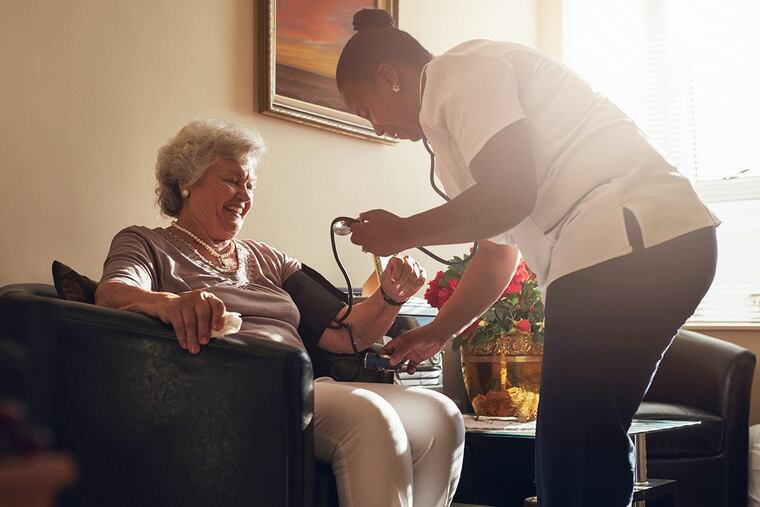Penn joins program to train doctors to make house calls
The program will include nurse-practitioners, physician assistants, and practice managers. It is aimed on improving primary care for housebound seniors.

The University of Pennsylvania's Perelman School of Medicine has teamed with an Illinois-based nonprofit organization to expand the number of medical professionals trained to provide house calls to elderly and medically complex patients.
The Home Centered Care Institute in Schaumburg is working with eight health organizations to train 5,000 doctors, physician assistants, and nurse-practitioners, as well as practice managers, over the next five years. Currently, the organization estimates that about 1,000 professionals are providing the bulk of in-home primary care in the United States.
Advocates of house calls for primary care visits say they help prevent more costly crises and help doctors understand the challenges their homebound patients experience. This is different from home care many people receive after an acute problem.
Home-based primary care targets older patients with a history of chronic health problems and repeated hospitalizations. "The cost to the system for a patient like that is tremendous," said Tracy Hulett, senior director of marketing for the institute. House calls can keep people out of the hospital and help caregivers provide better care. "It is about cost avoidance," she said.
Penn is already involved in a federal demonstration project called Independence at Home that is testing home-based primary care for older adults, said Rachel Miller, a Penn geriatrician who will be involved with the new project and does house calls herself for the Department of Veterans Affairs. "We believe in house calls and we really think this is the right care for so many older adults that cannot get out and access the health care system," she said. Only 14 percent of patients who need home-based primary care actually get it, she added.
Over two years, Independence at Home served 10,000 patients and reduced costs by $35 million, a saving that was shared by the government and providers, according to its website. Miller said Medicare currently pays for primary care home visits.
Penn hopes to offer two to three training sessions a year for the three years. The first session will start with two days of classes for 40 to 50 participants on Nov. 15 and 16. Twelve hours of classroom instruction will be followed by a mentorship experience and two days of work in the field. The course, which is open to professionals throughout the region, costs $2,500. Registration information is available at the Home Centered Care Institute website.
The institute will be spending $1 million over the next 18 months on the program, Hulett said. The tuition money will offset costs, but "we will never make money on training," she said. Donors will make up the difference.
Practice managers are included in the training, she said, to help health systems "create viable and profitable home care programs."
The other health providers participating in this initiative are Cleveland Clinic, Icahn School of Medicine at Mount Sinai, MedStar Health Medical House Call Program, Northwestern University Feinberg School of Medicine, University of Arizona Center on Aging, University of Arkansas for Medical Sciences, and University of California, San Francisco.